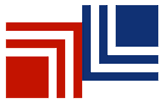Unsecured loans have gained attention as a solution for individuals seeking financial assistance without collateral. These loans offer a lifeline to those navigating financial difficulties by providing access to funds without requiring assets such as a car or property to be pledged as security. The absence of collateral distinguishes unsecured loans from secured ones, allowing borrowers to tap into financial resources solely based on their creditworthiness and financial standing.

Unsecured Loan Benefits
For individuals seeking personal financing, unsecured loans provide various benefits that cater to different financial requirements and preferences.
- Credit History Importance: One compelling benefit is the importance of a good credit history. Individuals with a solid credit history and high credit scores are often rewarded with favorable terms on unsecured loans. Lenders view creditworthiness as an important factor when deciding to approve a loan and determining the interest rate, empowering responsible borrowers with the opportunity to access funds at competitive rates, paving the way for financial stability and growth.
- No Collateral Requirement: The lack of collateral requirements renders unsecured loans appealing to individuals who might not have valuable assets to offer as security for a secured loan. In scenarios where borrowers lack tangible assets, unsecured loans offer a lifeline, enabling them to secure financing without risking specific possessions—this aspect of unsecured loans fosters inclusivity and accessibility in the lending landscape.
- Flexibility in Fund Usage: Fund usage is another notable advantage of unsecured loans. Unlike secured loans, which are often earmarked for specific purposes such as purchasing a car or home, unsecured loans grant borrowers the freedom to allocate funds according to their needs. Whether consolidating debt, covering unexpected expenses, or pursuing personal ventures, unsecured loans offer flexibility to address many financial challenges and aspirations.
- Expedited Application and Approval Process: Unsecured loans typically boast an expedited application and approval process compared to their secured counterparts. The streamlined nature of unsecured loan applications reduces bureaucratic hurdles, allowing borrowers to access funds promptly when faced with urgent financial needs. This swift turnaround time underscores the practicality and efficiency of unsecured loans.
- Suitable for Short-Term Financial Needs: Unsecured loans are often favored for short-term financial needs. Whether bridging a temporary cash-flow gap or financing a short-term project, unsecured loans offer a flexible solution with relatively shorter repayment periods. This feature resonates with borrowers seeking to repay the loan quickly and minimize interest costs, accelerating the journey to debt-free ownership and financial independence.
Unsecured Loan Drawbacks
Even though unsecured loans might look tempting, they can have some drawbacks that you should consider carefully.
- Higher Interest Rates: Unsecured loans typically come with higher interest rates than secured loans, reflecting the increased risk for lenders. Borrowers must be prepared for potentially higher costs over the loan term, balancing the immediate need for funds with the long-term financial implications of interest payments.
- Shorter Repayment Periods: Unsecured loans often entail shorter repayment periods, which may require borrowers to adopt stringent financial discipline. While accelerated repayment schedules expedite the path to debt-free ownership, they can pose challenges for individuals managing tight budgets or facing unforeseen financial setbacks. Navigating these shorter repayment periods necessitates careful budgeting and financial planning to ensure timely loan repayment without compromising other financial obligations.
- Credit Score Implications: Unsecured loan payments can adversely affect the borrower’s credit score. The absence of collateral means lenders rely heavily on creditworthiness as a risk assessment metric. Consequently, missed payments or defaults can tarnish the borrower’s credit history, jeopardizing future borrowing opportunities and financial stability. Responsible financial management and timely payments are imperative to mitigate this risk and safeguard the borrower’s creditworthiness.
- Market Fluctuations: Unsecured loans may be more susceptible to market fluctuations, particularly concerning interest rates. Economic shifts can impact the cost of borrowing, resulting in fluctuating interest rates over the loan term. Staying abreast of market trends and exploring fixed-rate options can help borrowers mitigate this risk, providing stability amidst economic uncertainties. However, borrowers must remain vigilant and adapt their financial strategies to navigate evolving market conditions effectively.
Weighing unsecured loan risks and benefits is essential for informed decision-making in personal financing. While unsecured loans offer valuable advantages, they also involve potential drawbacks.
You can use unsecured loans to your advantage to achieve your financial goals and aspirations. Just make sure you’re managing your finances well and not overspending. Contact us today with any questions about personal financing options, and let us guide you on your journey to financial empowerment.

